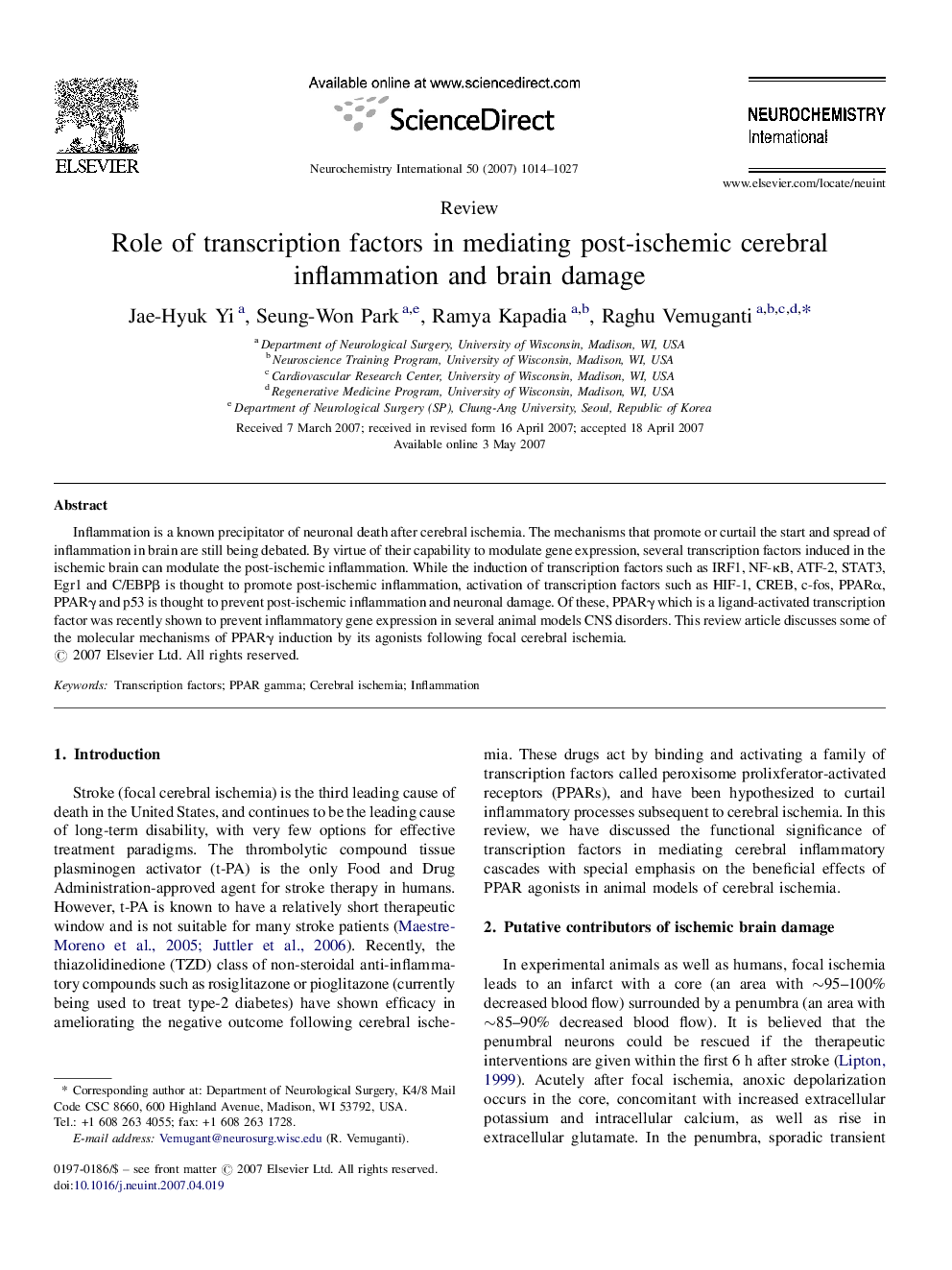| Article ID | Journal | Published Year | Pages | File Type |
|---|---|---|---|---|
| 2202030 | Neurochemistry International | 2007 | 14 Pages |
Inflammation is a known precipitator of neuronal death after cerebral ischemia. The mechanisms that promote or curtail the start and spread of inflammation in brain are still being debated. By virtue of their capability to modulate gene expression, several transcription factors induced in the ischemic brain can modulate the post-ischemic inflammation. While the induction of transcription factors such as IRF1, NF-κB, ATF-2, STAT3, Egr1 and C/EBPβ is thought to promote post-ischemic inflammation, activation of transcription factors such as HIF-1, CREB, c-fos, PPARα, PPARγ and p53 is thought to prevent post-ischemic inflammation and neuronal damage. Of these, PPARγ which is a ligand-activated transcription factor was recently shown to prevent inflammatory gene expression in several animal models CNS disorders. This review article discusses some of the molecular mechanisms of PPARγ induction by its agonists following focal cerebral ischemia.
